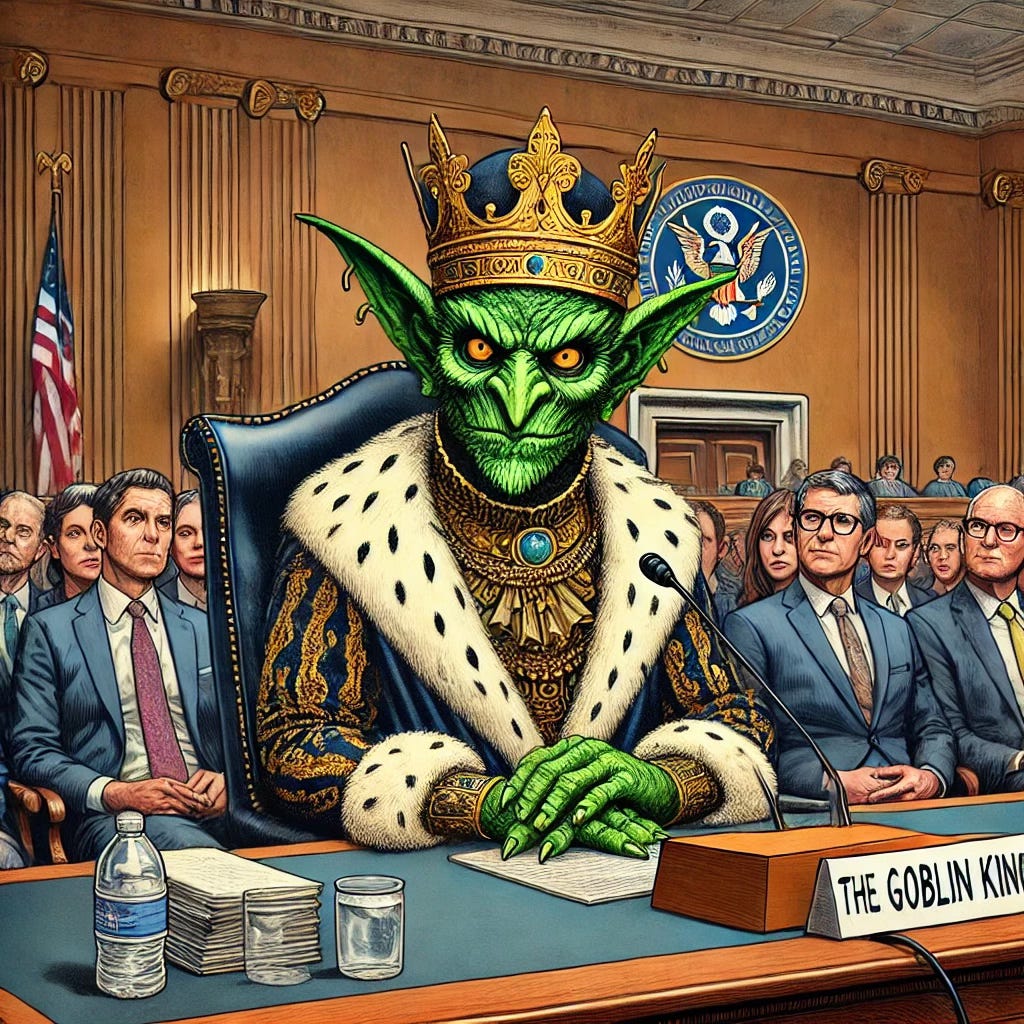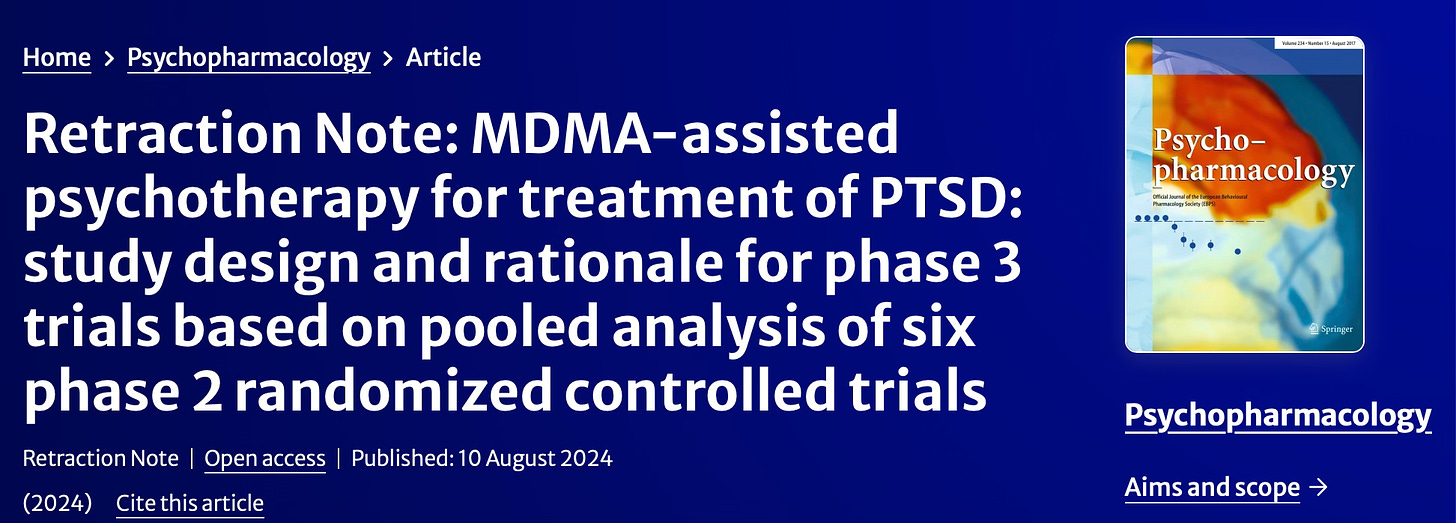I had assumed that I was done writing about MDMA-AT after the FDA requested an additional trial before considering the NDA submitted by Lykos Theraputics. After all, there is “a fiduciary duty in insurance plans under ERISA” to write about and UnitedHealth group to poke fun at; I don't have all day for this psychedelic drama!
Regular readers will be aware that I recently senior-authored a series of review articles on the topic of psychedelic medicines, publishing the April issue of the American Journal of Therapeutics, including an article about MDMA.1 There is one joke coming for which I must prepare you: I have been told that, among Rick Doblin detractors, there is a dismissive term for his most ardent supporters: “Doblin’s Goblins.”
The course of the last several weeks has proven that, although this won't be an approved therapeutic anytime soon, it continues to be one hell of a story. Today, before the weekend is even out, we have a retraction notice from the journal Psychopharmacology regarding a publication on MDMA-AT:
The Editors have retracted this article after they were informed of protocol violations amounting to unethical conduct at the MP4 study site by researchers associated with this project. The authors have subsequently confirmed that they were aware of these violations at the time of submission of this article, but did not disclose this information to the journal or remove data generated by this site from their analysis. Additionally, the authors also did not fully declare a potential competing interest. Several of the authors are affiliated with either the Multidisciplinary Association for Psychedelic Studies (MAPS) or MAPS Public Benefit Corporation (MAPS PBC), a subsidiary that is wholly owned by MAPS. As is stated in the Funding declaration, MAPS fully funded and provided the MDMA that was used in this trial, and MAPS PBC organized the trial.
Journal retractions are a big, big deal. Another was just retracted from the same journal as reported by fellow Substack-er
. Of note, this isn’t the first time articles about MDMA have been retracted from major journals—the initial scaremongering about MDMA and “Brain Damage” was an embarrassing retraction in 2003. It's an even bigger deal, in this particular context, that one of the authors broke ranks with Dr. (of political science) Rick Doblin:Allison A. Feduccia agrees with this retraction but disagrees with the wording of the retraction notice.
Others chose to stand with the Goblin King2:
Michael C. Mithoefer, Lisa Jerome, Anne Mithoefer, Mark Wagner, Berra Yazar-Klosinski, and Rick Doblin disagree with this retraction.
One author punted:
Zach Walsh stated that they neither agree nor disagree with this retraction.
And perhaps most upsetting to yours truly:
The remaining authors did not respond to correspondence from the Publisher about this retraction.
Something that should be painfully obvious: individuals who champion the FDA approval of a drug that is still a Schedule I compound, according to the DEA, might have probably broken the law in the past.
I am personally an advocate of thoughtful de-criminalization of recreational drug use. However, it's probably telling that I've never used a recreational drug in my life. Drugs are illegal. I'm a square. I'm a doctor. That would be a huge deal for my medical license—so avoiding crime is up my alley. The same cannot be said for non-physician Dr. Doblin et. al. People using MDMA, axiomatically, had to be comfortable with some degree of criminal behavior. The psychedelic underground has been doing things that are overwhelmingly against the law. There is a difference between disagreeing with the law while advocating to change the law and being willing to violate that same law. Much of the psychedelic underground had to be comfortable with breaking the law when it didn't suit them. This is the same kind of ethical conflict that Socrates died on the other side of:
In 399 BC, Socrates was formally accused of corrupting the minds of the youth of Athens, and for asebeia (impiety),...Socrates was given the chance to offer alternative punishments for himself after being found guilty. He could have requested permission to flee Athens and live in exile, but he did not do so….After a trial that lasted a day, he was sentenced to death. He spent his last day in prison, refusing offers to help him escape.
Socrates chose to follow the law to his death. Rick Doblin et al. chose otherwise. Their propensity to break the law extended beyond ingesting illegal drugs. It seems to include laws that they found inconvenient. Wait a moment, my readers might be saying, this is just a journal retraction! Yes, dear readers, but it’s also possibly a crime.
This retraction and its very specific language:
The authors have subsequently confirmed that they were aware of these violations at the time of submission of this article, but did not disclose this information to the journal or remove data generated by this site from their analysis.
Is evidence of a potential criminal matter, which is covered in the federal law related to the submission of fraudulent data to the FDA:





